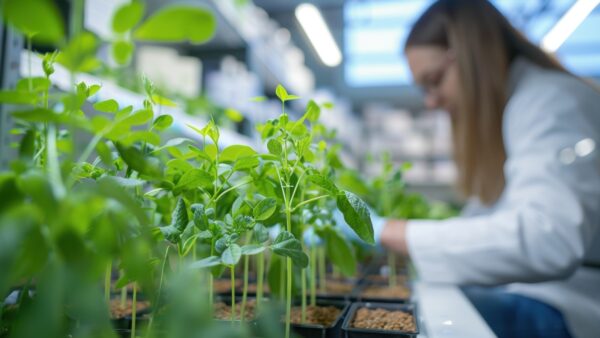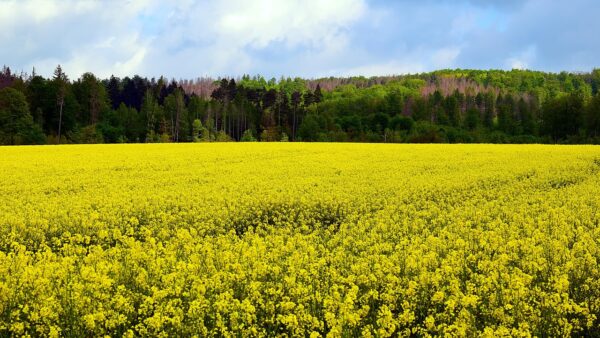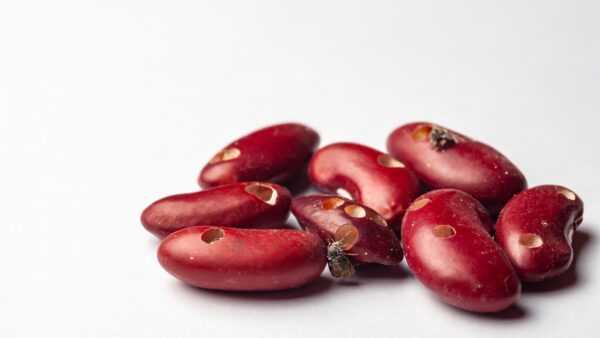The Organisation for Economic Co-operation and Development offers an inside look at how seed schemes are helping facilitate import and export of seed in order to help the industry grow.
The Organisation for Economic Co-operation and Development (OECD) Seed Certification Schemes is a global framework for the varietal certification of internationally-traded seed. The overarching objective of the schemes is to increase market access and facilitate trade by simplifying certification procedures, reducing technical barriers to trade and ensuring traceability of the seed. In addition, the schemes contribute to the harmonization of international standards through the consistent enforcement of quality standards and inspection procedures.

For over 50 years, the schemes have provided farmers access to high-quality seed from all over the world and have made a major contribution to raising crop productivity, increasing farm incomes and contributing to global food security. The availability and access to a consistent supply of high-quality seed is critical for a dynamic, competitive and productive agriculture sector. With an ever-growing world population, increased productivity is critical. Thus, farmers’ access to new and higher-yielding varieties is critical to meeting this challenge.
The OECD schemes have made a substantial contribution to growth in the global seed trade, especially with respect to field crops. Over the last three decades, the global seed market has grown at a rapid pace, driven by demand for higher-yielding varieties of seed — hybrid seed in particular. Currently, the value of the global seed market is estimated at about US$45 billion, with Europe, North America and Asia accounting for over three-quarters of the total.
The United States, China, France and Brazil are the largest seed markets in terms of value. However, the composition of the industry varies by region, with trade in vegetable seed by far the most important in Asia, while field crops are significantly more important in other parts of the world. Exports and imports of seed have also grown rapidly in recent years, and the international seed trade is currently valued at about US$9 billion annually. The largest exporting countries are The Netherlands, United States, France and Germany.
Technical Certification Standards
OECD varietal certification standards are developed by an expert committee consisting of the National Designated Authorities (NDA), researchers, industry and farmer representatives, as well as representatives of other international organizations. The certification standards are based on two key criteria: varietal identity and varietal purity. The committee meets annually to discuss and approve new standards or modifications of the existing standards.
All changes to the standards must be agreed on by consensus of the 58 member countries. In essence, the schemes set out the rules and procedures for checking varietal identity and varietal purity, and these procedures are harmonized amongst participating countries. Furthermore, the schemes authorize the use of labels and certificates for seed produced and processed for international trade according to the principles established for each of the seven schemes.
The rules are regularly updated to reflect the needs of stakeholders and, in particular, the NDAs. Changes in agriculture, trade and environmental policies as well as changes in biotechnologies often result in the need to further refine the rules. The frequent meetings between NDAs of participating countries and stakeholders allow for an exchange of information, discussion of concerns, and proposals for modification of the rules to ensure an effective and efficiently operating system. The NDAs in participating countries are responsible for the implementation of the schemes, and also for ensuring compliance with the rules and regulations as well as guidelines for control plot tests and field inspection of seed crops.
Seed production is one of the most regulated sectors in most countries. Many countries have adopted strict laws and regulations that govern plant breeding, production, distribution and marketing of seed at the national and international level. In this context, it is critical that national legislation is fully in line with international requirements. Stakeholders along the value chain work together to ensure that quality standards are maintained, enhanced and consistently applied over time.
The OECD Seed Certification Schemes consist of seven schemes, with the admission to each scheme independent, but subject to meeting the specific technical requirements. The schemes are:
- Grass and legume seed;
- Cereal seed;
- Crucifer and other oil or fiber species seed;
- Maize and sorghum seed;
- Sugar beet and fodder beet seed;
- Seed of subterranean clover and similar species; and
- Vegetable seed.
The Maize and Sorghum Seed Scheme is the largest of the seven, and accounts for over 50 percent of all varieties listed in the OECD varietal List. The rapid growth in hybrids has been the main driving force behind this increase.
Frequent meetings allow for a multi-stakeholder dialogue to exchange information, and to find solutions to contentious issues. An effective and efficient national and international regulatory system is critical to ensure that farmers have access to the best varieties of seed that are available globally.
Schemes at the National Level
Seed schemes are administered by the NDA, which is primarily responsible for ensuring that the rules are correctly and properly implemented. The NDA is normally appointed by the member country’s Ministry of Agriculture and can be part of the ministry or an agency authorized by the ministry.
For seed to be traded with an OECD label, the variety must be registered on the official OECD Varietal List. In order for this to occur, a number of technical criteria must be first satisfied. Firstly, only those varieties that are officially recognized as satisfying a test for distinctness, uniformity and stability (DUS), and have an acceptable agronomic value in a participating country, can be considered. Secondly, all the certified seed produced must be related directly through one or more generations to authentic basic seed of the variety. Thirdly, post-control tests are conducted in order to assess if the implementation of the schemes are operating satisfactorily. Finally, the variety must be listed on the official national certification catalogue of the country.
The schemes facilitate imports and exports of seed by the removal of technical barriers using labels recognized globally which, in effect, act as a “passport” for the seed traded. The rules also set the technical specifications for seed multiplication outside the country, and this is becoming more important in the northern hemisphere to ensure adequate supplies of high-quality seed of the variety during the sowing season.
While the OECD schemes set the quality standards for seed that is traded internationally, more and more countries are now adopting these standards for their domestic seed production and domestic markets.
The schemes are built on the participation of all stakeholders along the supply chain, including regulators, plant breeders, seed producers, traders and farmers in participating countries. Frequent meetings allow for a multi-stakeholder dialogue to exchange information, and to find solutions to contentious issues. An effective and efficient national and international regulatory system is critical to ensuring that farmers have access to the best varieties of seed that are available globally.
A further feature of the implementation relates to the close and constructive interaction between public and private stakeholders, which has facilitated the issuing of official certificates and labels and resulted in the fast growth in trade of certified seed between countries.
Emerging Challenges and Issues
The harmonization of certification procedures at the international level brings many benefits, and has made a significant contribution to the growth of the global seed market. Nevertheless, there are numerous challenges and issues that the sector needs to address. One of the complex challenges facing seed certification today is the issue of climate change, and the likely impacts this will have on plant breeding, seed production and the direction of trade. With climate change, the traditional seed producing countries and regions of the world are likely to shift, resulting in a significant change in the direction of trade for certified seed.
Another challenge is the rapid advancement of biotechnology and the implications this will have for markets, certification standards and testing procedures. In particular, there will be an increasing focus on traits that deal with abiotic stresses. With the rapid advances in biotechnology, the average lifespan of a variety is expected to be shorter, with significant consequences for research and development, seed varietal certification and markets. This area requires further in-depth analyses, particularly when it comes to the effectiveness of the existing technical requirements for varietal certification, as well as the associated costs in this fast-moving environment.
A further challenge to take into account relates to changes in consumer preferences and the impact this will have on market demand and the attributes of crops and new varieties of seed. For example, there is growing interest in specific quality attributes in food crops, which in turn is expected to increase the demand for new varieties with characteristics demanded by consumers. Another example is the certification of varieties for specific uses, such as for biofuel production.
The ongoing structural changes at the farm level also pose a challenge with the steadily increasing size of farms, which will have important implications for the input supply sectors, especially seed. In effect, more and more farmers are demanding a complete and fully integrated approach to dealing with the complex regulatory requirements for seed quality, phytosanitary standards and environmental standards in order to lower costs and increase efficiency.
The global nature of seed companies is also an issue, with fewer but larger companies emerging to serve the growing global demand for certified seed. For some crop species, this process is already well advanced. This may have further implications for international certification and the availability of high-quality seed for farmers.
A long-standing issue in the seed sector is the lack of an international varietal certification system for vegetable seed. This issue is very complex and potentially costly due to the wide diversity of species included in this group. Trade in vegetable seed is expanding, especially in Asia, and the value of the trade is growing rapidly. However, while there is interest in developing a credible, effective and cost efficient international varietal certification system to handle this category of seed, this does not exist at the moment.
With the ever-increasing administrative and regulatory demands associated with meeting the growing list of quality standards, greater attention needs to be taken to ensure that the benefits of high standards do not become a burden and limit farmers’ access to the highest quality seed varieties currently available in the world.
The OECD Seed Schemes Ad-Hoc & Technical Working Group meetings will be held Jan. 26-29, 2016, in Cape Town, South Africa. The annual meeting will take place on June 9-10, 2016, in Paris, France.
Editor’s Note: Michael Ryan is currently Senior Policy Advisor at the Organisation for Economic Co-operation and Development (OECD). His advice extends to the OECD’s Codes and Schemes, , which cover the development and implementation of international standards for tractor codes, seed certification, forest FRM certification, as well as quality standards for fruits and vegetables. Dr Ryan holds a Ph.D. in Agricultural Economics (International Trade and Finance) from the University of Alberta, Edmonton, Canada, and an M. Agr. Sc. from University College Dublin (UCD), Ireland. The opinions expressed in this article are those of the author and do not necessarily reflect the official views of the OECD.













